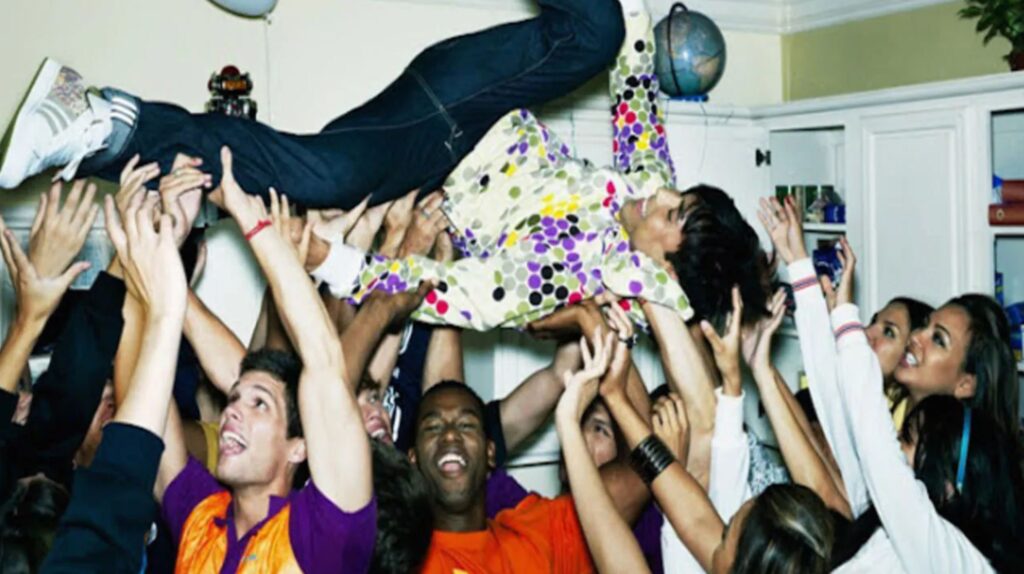Life’s a Party, Except When It Isn’t
By Tony Bui, Associate Lawyer, Gardiner Miller Arnold LLP
The overlapping issues of short-term rentals, parties and condominium liability are problematic enough without the added risk of a COVID19 outbreak. Condominiums are community-based residences, and as a result, one resident’s actions can have a serious effect on others for better or for worse: the risk of contracting COVID19 increases with the number of different people one is exposed to. Under normal circumstances prudent condos should be taking reasonable care to ensure their premises are reasonably safe as required by the Occupiers’ Liability Act. The stakes and consequences are higher when we add a highly contagious disease that was capable of shutting down the global economy to the mix.
Thankfully, the recently enacted Supporting Ontario’s Recovery Act protects individuals and corporations from liability for COVID19 exposure/infections if they, “Acted or made good faith efforts to comply with public health guidance” and their actions were not grossly negligent. While this protection does not extend to employers if their employees contract COVID19 while working, it is a good first step to protecting condominium corporations.
Here are a few tips to limit your risks and exposure:
Stay Informed
To comply with public health guidance, it’s important that you know what the public health guidance is – you won’t be protected from liability if you rely on suggestions from online chat groups encouraging you to walk around the common elements without a face mask. “Public Health guidance” is a defined term under the Supporting Ontario’s Recovery Act but generally speaking, you should follow recommendations from Ontario’s health agencies.
Comply
Once you know the public health recommendations, implement them in your condo. An obvious example is to enact a policy requiring residents wear to face masks while in the common elements; this is already mandatory by many municipal by-laws, but it is still helpful for a condo to enact its own policy. Beyond following basic COVID19 recommendations, the big problem for condos seems to be parties and social gatherings, and the popular target in this fight is short-term rentals. Although short-term rentals are not currently prohibited in Ontario, it naturally makes sense for condos to pass a rule prohibiting short-term rentals if the goal is to prevent a COVID19 outbreak: there will be fewer transient individuals coming to the condo.
These are all just a few examples of inexpensive and proactive steps a condo can take to demonstrate it is making a “good faith effort to comply with public health guidance”.
Investigate and Enforce
Rules in a free society are only as effective as they are followed and enforced. Even with COVID19 policies and rules against short-term rentals, we can expect a few bad apples to spoil the bunch. In these situations, the condo should still attempt to seek compliance without resorting to physical force. If you are dealing with individuals who refuse to wear a face mask in the common elements, you can send them a notice requiring they comply with the condo’s mask policy with a warning that repeated offences may lead to further action from the condo’s lawyers or the public health authorities. It may seem like a lot to do for a seemingly minor infraction but a “good faith effort” requires an “honest effort, whether or not that effort is reasonable”. There can’t be an “honest effort” if there is “no effort”.
Report Infractions
If a party is continuing despite your reasonable warnings and notices, a quick call to 311 or 911 in the case of an emergency may prompt a swift response from a municipal COVID19 enforcement team or the police. With our bottle-throwing “friends”, the good times were only brought to a screeching halt when a number of police officers showed up on the scene – even then, the parties were reportedly throwing bottles at the officers investigating the incident from the ground. In these stickier situations, it’s best to leave it to the municipality or the police. Security personnel and property management should avoid resorting to physical force.
Keep a Paper Trail
It’s critically important that you keep careful notes, memos or videos of these incidents. If your condo needs to ramp up enforcement, whether through its own civil proceedings or assisting with criminal investigations, you want to make sure you have more to rely on than your own memory. With a picture or video in hand, it will save you from a “he said, she said” argument later. As the saying goes, “a picture is worth a thousand words”.
We are a year into the pandemic and the world has made promising progress. However, things aren’t back to normal just yet. Fortunately, the Supporting Ontario’s Recovery Act limits an organization’s liability from an individual who contracts COVID19 provided the organization “acted or made good faith efforts to comply with public health guidance”. Even without this protection, the suggestions in this article are an effective first response to pesky condo parties. Condos now have every incentive to crack down on illegal parties. There is no excuse to turn a blind eye.
